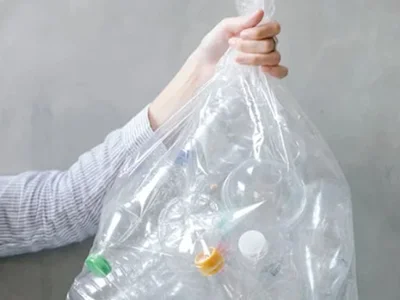The 15-Second Trick For Reclaim Waste
The 15-Second Trick For Reclaim Waste
Blog Article
The 3-Minute Rule for Reclaim Waste
Table of ContentsSee This Report on Reclaim WasteFacts About Reclaim Waste UncoveredNot known Incorrect Statements About Reclaim Waste How Reclaim Waste can Save You Time, Stress, and Money.The Buzz on Reclaim Waste
Discover the kinds, events, and kinds of liquid waste. Domestic sewage waste refers to the waste and items from a residential septic storage tank. This sort of waste is developed by humans in homes, institutions, and various other buildings. This only includes septic systems that have a drain area. The proper management and disposal of residential sewage waste call for fluid waste to be moved to a sewage therapy plant where the appropriate methods and devices are related to purify and take care of waste.
Commercial waste often includes possible threats, such as flammable materials or a combination of fluid and solid waste products, and requires an extra advanced and detailed disposal procedure. The disposal of industrial waste usually involves the filtration of waste before transport to ensure secure and appropriate disposal. Industrial waste is produced from by-products and overflow of commercial procedures and manufacturing.
This type of waste can not make use of the very same sewage administration transportation or processes as septic or industrial fluids. The commercial waste administration process needs the examination and screening of fluid waste prior to it goes through the disposal process (industrial wastewater treatment). Runoff waste is the liquid waste that originates from overflow and excess stormwater in very inhabited areas or cities
Overflow waste can trigger contamination and flooding if not dealt with appropriately. Discover a lot more regarding drain cleaning and waste management. Guaranteeing appropriate waste administration can avoid disasters and reduce ecological damage. Both individuals in domestic setups and experts in industrial or manufacturing markets can take advantage of understanding the procedures and guidelines of liquid waste management.
The Facts About Reclaim Waste Uncovered
Call PROS Providers today to discover about our waste monitoring and disposal services and the proper ways to look after the liquid waste you create.
(https://www.storeboard.com/reclaimwaste2)Do you know what takes place to your water when you disengage, flush the bathroom or drain the washing maker? No? Well, it's worth recognizing. This so-called 'wastewater' is not just a crucial resource however, after therapy, will certainly be released to our land, rivers or the ocean. Made use of water from toilets, showers, bathrooms, kitchen sinks, washings and commercial procedures is called wastewater.

water used to cool down machinery or clean plant and tools). Stormwater, a form of wastewater, is overflow that moves from agricultural and city areas such as roofing systems, parks, yards, roadways, courses and rain gutters right into stormwater drains pipes, after rain. Stormwater streams without treatment straight to local creeks or rivers, at some point reaching the ocean.
4 Easy Facts About Reclaim Waste Described
In Queensland, many wastewater is dealt with at sewage treatment plants. Wastewater is transported from domestic or industrial websites via a system of sewers and pump stations, known as sewerage reticulation, to a sewer therapy plant. City governments construct, keep and run most sewer treatment plants. Operators are certified under the Environmental Defense Act 1994 to release cured wastewater at an acceptable ecological criterion right into waterways.
The Department of Natural Resources advises local governments concerning managing, operating and keeping sewage systems and therapy plants. In unsewered locations, city governments might need householders to install specific or family sewage therapy systems to treat domestic wastewater from commodes, cooking areas, bathrooms and washings. The Division of Natural Resources authorizes the use of family systems when they are verified to be effective.
In some new class, therapy of some stormwater to get rid of trash, sand and gravel has started utilizing gross pollutant traps. Wastewater therapy occurs in four phases: Removes solid issue.
Wastewater after that flows right into huge storage tanks where solids clear up and are removed as sludge. Grease and residue are skimmed from the surface. Uses small living organisms called micro-organisms to break down and get rid of remaining liquified wastes and fine fragments. Micro-organisms and wastes are incorporated in the sludge. Gets rid of nitrogen and phosphorus nutrients that could create algal blooms in our rivers and threaten marine life.
What Does Reclaim Waste Mean?
Nutrient removal is not available at why not try this out all sewage treatment plants because it calls for costly specialized devices. Clear liquid effluent produced after therapy may still contain disease-causing micro-organisms - liquid waste removal.

A lot of wastewater moves into the sewage system. Under the Act, local federal governments administer authorizations and permits for ecologically pertinent activities (Ages) entailing wastewater releases that may have a local effect.
Reclaim Waste Things To Know Before You Buy
Or else, examples are considered laboratory analysis. Typically several tests are required to develop the degrees of each of the various toxins such as oils, hefty steels and chemicals in water. Monitoring provides factual info regarding water high quality and can verify that permit problems are being met. The info acquired via surveillance provides the basis for making water quality decisions.
Report this page